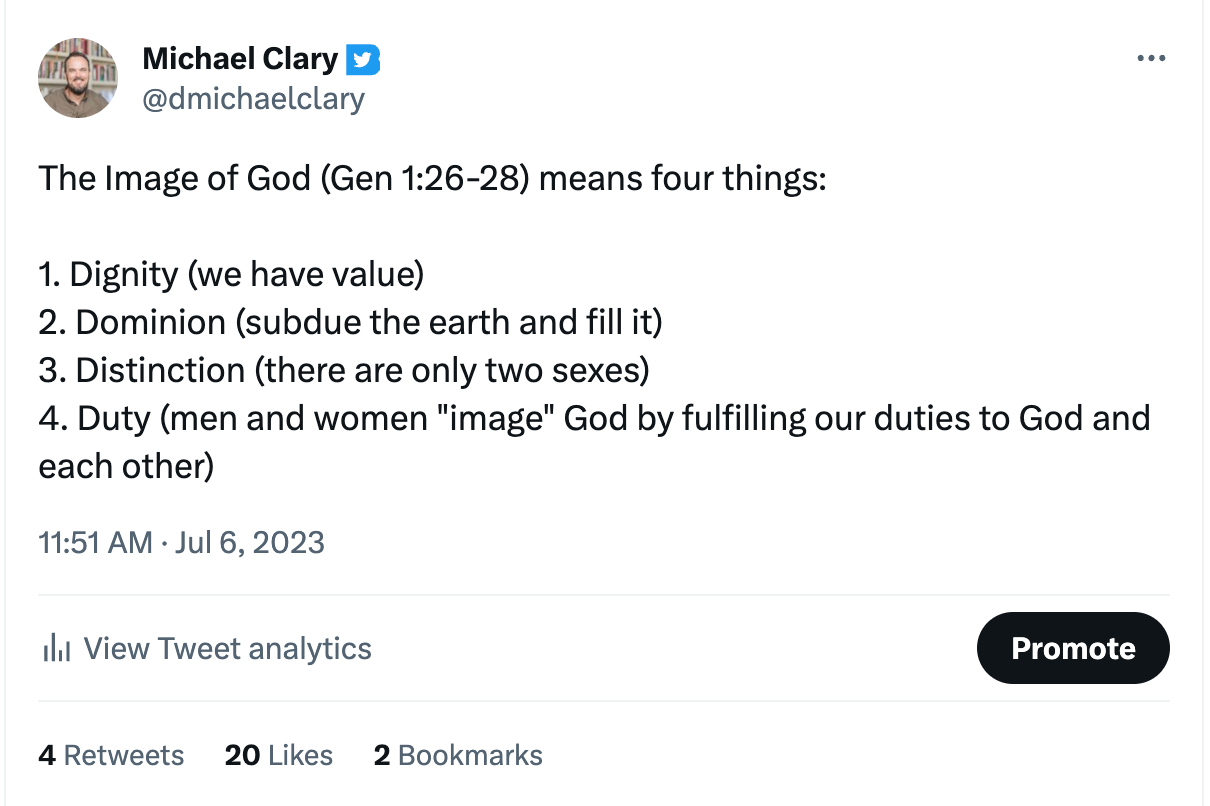Some people claim Jesus must have been tempted by homosexuality, since he was tempted in every respect (Heb 4:15).
Not so fast.
Heb 4:15 says: “For we do not have a high priest who is unable to sympathize with our weaknesses, but one who in every respect has been tempted as we are, yet without sin.”
Thus, if Jesus was tempted in every respect, then Js must have been by homosexual lust. This is wrong.
In the Sermon on the Mount, Jesus said lust is sinful (Matt 5:28). In other words, the *desire* for sin is sin.
So what about Jesus being tempted in every respect? The answer is to differentiate between two kinds of temptation. One is internal and one is external.
An internal temptation arises from one's own sinful desires. Jms 1:14 says, "each person is tempted when he is lured and enticed by his own desire." In other words, he tempts himself to sin because he wants it.
An external temptation comes from another person, evil spirit, or opportunity to sin. Someone tempted me to smoke weed once (external), but I wasn't interested (internal). I didn't desire it, even though someone tempted me with it.
The Gk word for tempt in Heb 4:15 is peirazo, which means, "to endeavor or attempt to cause someone to sin — to tempt, to trap, to lead into temptation, temptation." In other words, the temptation Jesus experienced was external, not internal. He never desired sin.
I believe the author of Heb was referring specifically to Jesus' temptation in the desert. Matt 4 says Jesus was "tempted by the devil" (v1) and calls the devil "the tempter" (v3).
Temptation refers to Satan's action, not Jesus' desire. Satan tempted Jesus to sin, but Jesus never desired the sin he was tempted with.
The bottom line: if Jesus desired sin, he would be a sinner & not a savior.
But Jesus never sinned & never desired sin, tho Satan tempted him.
Thru faith, Jesus does the same for us. He forgives our sin, helps us fight sin, and over time he removes all desire for sin.
Is it a sin to desire sin?
I posted this on Twitter this week and got this question in response:
Wanted to ask privately, cuz I’m not trying to stir a hornets nest. Just wanting to discuss and learn. No worries if you’re too busy to respond to random dude.
Per the “desire for sin is sin” discussion, do you think there’s any difference between “attraction” and “desire”? Here is what I mean: when people say “homosexual desire isn’t sin, but the behavior is” I don’t think they are trying to say “homosexual lust isn’t sin.” I don’t imagine they have in mind that it’s okay to simply sit around craving homosexual behavior as long as you don’t act on them. No, that’s sin.
Rather, I think they mean: “to find yourself upon entering puberty with an attraction to the same sex, through no choice or desire of your own, is not a sin in and of itself. And to be unable to change this attraction during your earthly life isn’t by itself sinful. You don’t need to feel crushing shame, suicidal ideation, or lifelong depression as a result of merely finding yourself unable to change this attraction. However, it is still the case that pursuing that homosexual attraction any further is sinful.” And I think, in that context, they would agree that “pursing further” includes “desire” aka lust.
For a similar example/question, is it possible for a heterosexual man find a woman attractive without letting that become desire for her? I would think so, though it takes great self control — as it would for the person who finds themself with a homosexual attraction. Let me know your thoughts.
One additional (relevant) thought: perhaps the offers the devil made to Christ were attractive, because it seems almost impossible for the thought of food to someone who is starving to not be attractive, but he stopped short of desiring/craving it, which would have been sinful. If the things the devil offered weren’t at least potentially attractive, then it would seem more or less like kabuki theater.
Here’s a few things I’d say in response.
First, the questioner distinguishes between attraction and lust. In my view, that’s a distinction without a difference, like the difference between a sapling and a tree. The Greek word for lust is defined as “long for, to desire very much.” Assuming the attraction is towards someone of the same sex, it is a forbidden desire, regardless of whether or not that desire has progressed into lust.
Second, not all lust is the same, because different things are forbidden for different reasons. Some desires are natural and other desires are unnatural. An engaged man who lusts after his fiancé is sinning by desiring something natural and good before the proper time. His natural desire will be sanctified by God in the marriage bed. But a man who lusts after another man desires something unnatural (see Rom 1:26-27). There is no scenario where God would sanction a union between two men because the union itself is unnatural. Both types of lust are sinful, but only the first entails the possibility of becoming a “holy” union.
Third, let’s apply this thinking to the question of fasting. Would it be sinful for a man to desire food while he is fasting? This is clever but it doesn’t work, because homosexual desire is unnatural. The 10th Commandment forbids sinful desire (Ex 20:17). We cannot sanction the breaking of this commandment by turning it into a spiritual discipline (cf 1 Cor 6:13).
Christians can fast from food (Matt 6:17) or abstain from marital relations (1 Cor 7:5) to devote themselves to prayer as a means of increasing dependence on God. In both cases, they are depriving themselves of something good in order to produce a spiritual benefit. The desire for food is good and the desire for marital intimacy is good. Homosexual desire is a desire for something that is never good. The natural desire to eat bread is not the same as the unnatural desire to eat a bag of nails.
Fourth, I argued in my book that homosexuality has been treated as a protected class of sin for quite a while now. If someone is “born this way,” then that person is not responsible for fighting sin/temptation in the usual way and walking in obedience. The doctrine of original sin affirms that we’re all born will all manner of various sins and temptations (Rom 3:10-18). Some may be born with a proclivity towards homosexuality. Others will be born with a proclivity towards alcoholism. Others will be born with proclivities towards violence, and so on.
Fifth, our society has conditioned us to regard homosexuals as innocent victims of unwanted desire, thus granted them “protected class” status in the church. Having heard so many stories of wonderful homosexuals who just want to find love like everyone else that we lose sight of the fact that God calls this sin an abomination.
But suppose we swap out homosexuality for some other sin that isn’t socially sanctioned and even celebrated. Would we be so tolerant towards someone who said they have struggled with an unwanted “attraction” to children, through no choice of their own? Of course not. We would readily acknowledge that it is a sin to molest children and it is a sin to DESIRE to molest children.
Sixth, the questioner’s moral framework includes one’s subjective, emotional experiences of “crushing shame,” “suicidal ideation,” and “lifelong depression.” Scripture calls us to find hope in Christ and the truth of the gospel through repentance. Shame can a gift of God to help a person recognize their sin in order to repent, receive forgiveness, and find life in Christ.
Suicidal ideations and lifelong depression aren’t the exclusive property of homosexuals with unwanted desire. Christians of all sorts may experience these feelings and God has given us tools to deal with these horrible experiences. Any man who has sinful sexual desire for other men can deal with his sin in the usual way of the Christian life: prayer, scripture, repentance, forgiveness, self-denial, fellowship with other believers, and so on.
The bottom line is this. Every particular sin temptation has its own unique challenges, and in the gospel, by the power of the Holy Spirit, God has given us everything we need to fight all manner of sin. “His divine power has granted to us all things that pertain to life and godliness, through the knowledge of him who called us to his own glory and excellence” (2 Peter 1:3).
UPDATE: One reader directed me to this article by Joseph Bayly that makes a similar point I’m making here. Probably better written and clearer too!
Tweets of the Week
Please Review God’s Good Design!
The book is still going strong, but the reviews on Amazon have slowed down. If you have read the book, please take a moment to give it a review! Here’s the link to do that.









What does “attraction” to the same sex even mean? Noticing someone of the same sex is an attractive person? Wanting to do something physically intimate to them? I think the word “attraction” can act as a euphemism and brings added confusion to when people should repent.
It is difficult to remain soft spoken on the things that are left ambiguous in scripture. When you review scripture holistically, I believe, there is a component of desire that can become sin and a component of a desire that is not sinful. In your anger do not sin. I do believe Jesus experienced real temptation for bread. He probably experienced real hunger pangs. But when we speak in sweeping generalizations, dogmatic certainty, and attempt to go beyond the clarity not yielded by scripture, we are vying for attention and competing for God’s glory and authority instead of humbly wrestling with scripture.